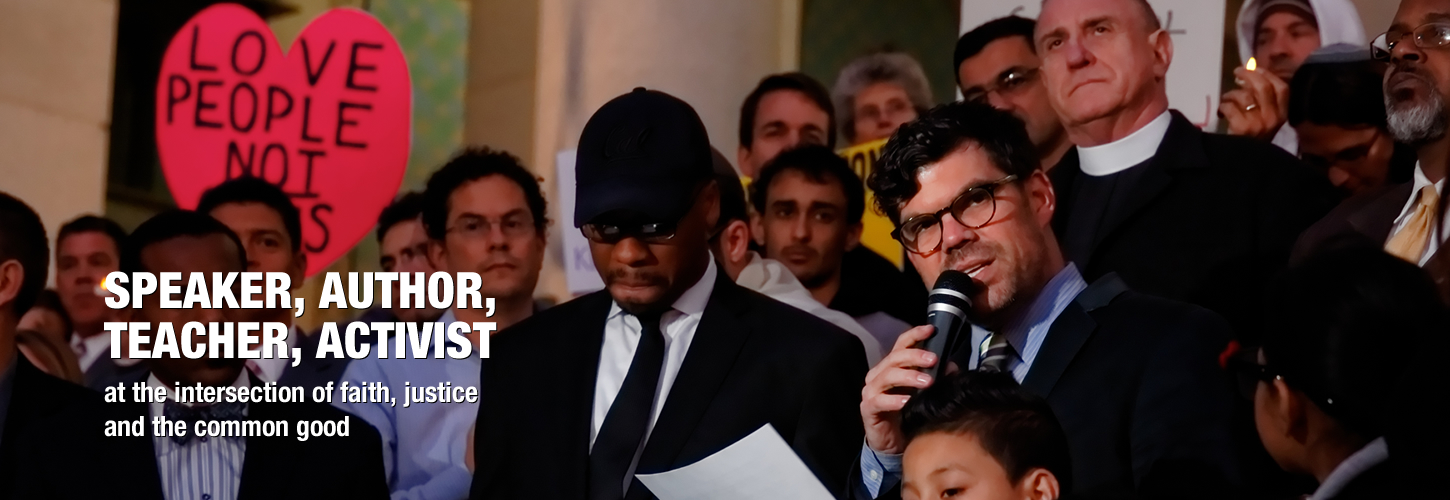No church completely embodies its highest ideals for itself, but I have to say that this statement has profoundly shaped my congregation. It is the thing I love the most about Hollywood. However, structuring a congregation around this statement is no simple task. It is messy and unpredictable.
One of my favorite statements about the Spirit is in John 3:8 where Jesus says to Nicodemus,
The wind blows where it chooses, and you hear the sound of it, but you do not know where it comes from or where it goes. So it is with everyone who is born of the Spirit.
The movement of the Spirit is a mystery. It is not linear, and therefore not predicable. In fact, the Spirit’s movements sometimes appear random, confusing and contradictory.
But we have been raised in a modern world that prizes predictability, control, and measurable outcomes. Pastors today are caught in the liminal space between a modern industrial worldview and the spiritual realities of leadership in a postmodern culture. There are very real expectations placed upon pastors and church leaders – solid Biblical exposition, spiritual guidance, programs that meet their needs and the needs of their families. Conference administrators expect the church to grow in membership and attendance through new baptisms and accessions to the faith, as well as financial growth and stability. These expectations are reasonable in most cases.
Yet, in a rapidly changing, post-Christian world, these expectations create an almost unbearable pressure and anxiety for church leaders. I know. I’ve felt this pressure with such intensity that it has nearly crushed me a time or two or three. Congregations and Conference administrators expect pastors to know what to do. But here’s the dirty little secret: we don’t know what to do! And we’re scared to admit to you that we don’t know what to do.
The world that we were trained to minister in doesn’t exist anymore. The answers we’ve learned are all too often for questions very few people are asking. So we try our best to come up with new and better tools – ways of creating church so it will appeal to new generations of people. Most of the time it doesn’t work and we feel like dismal failures.
In my most recent transition – now five years ago – to Hollywood, I came face to face with this reality. When I sat behind the desk in my office for the first time and watched the interim pastor walk out the door, terror seized me. For the first time it was inescapable. Well into my second post-graduate degree I had to confess, I had no idea what to do. This was the beginning of my freedom.
That first year whenever my elders, deacons or church board would ask some version of the question, “What are we doing to do, pastor?” I would try to appear calm and answer, “I don’t know.” The look of consternation on some faces in those early days told the whole story. They had expectations. The Senior Pastor is supposed to know what to do. Did we choose the wrong pastor? Is he too young? Does he lack creativity and drive? It was then that I remembered the slogan I had read on the church website even before I took the call: “Where God’s Spirit is given space to change lives.”
Then and there made a commitment to prioritize process over outcomes. I have always been a process person, but I also knew that there were particular outcomes that I had to achieve. Now I was sacrificing all those outcomes. I surrendered them to God. I surrendered to God all my beliefs and goals about what an “ideal church” was supposed to look like. With it I surrendered my reputation. After all, whether we want to admit it or not, pastors build their reputations on a variety of church growth measures.
These days, whenever I get the opportunity to speak to pastors about church leadership I tell them that the beginning of wisdom is the confession, “I don’t know.” For most pastors this sounds like the kiss of death. It is hard enough, in the realm of theology, to admit to any unknowing, to allow for much mystery. We prize knowing. Our tradition values answers over questions. But when it comes to church leadership it is even more difficult to admit we don’t know.
So my suggestion is simple. If the Spirit is what constitutes the church (see Acts 1-4) and the Spirit is, as Jesus said, mysterious, unpredictable and uncontrollable, why should we expect the Spirit’s activity in the church today to be any less mysterious or unpredictable?
I had to learn to allow my theology to affect my ministry practice; to allow the sense of unknowing I had about God to manifest itself in my leadership. This is what it means to “give the Spirit space.”
For me, then, leadership becomes about creating this space. The question that drives me more than any other is how to be an architect of this spiritual space – this Spirit-ual space. The Spirit that moves, unpredictably, like the wind, is the same wind – ruach – that moved over the waters in Genesis 1. Ruach was the creative energy behind everything God created. Still today, the Spirit is a creative being. What you can expect, then, as you drop your plans and expectations in favor of “not knowing,” focusing instead on creating space for the Spirit, is that creativity will begin to grow and flourish. (This might sound like a good thing to you, but it can also be profoundly threatening. Don’t say you weren’t warned).
The most obvious question that remains is this: how can we create this space for the Spirit? I want to make four general suggestions about the kind of leadership I think is required if we are going to be architects of a spiritual environment where God can transform lives and communities.
Creating Conversation and the Spiritual Practice of Listening
First, leadership must create rich conversations across the congregation. In most churches, the communication flows in basically one direction – from the pastor and church leaders out to the congregation. But the kind of spiritual space I’m describing requires there to be an open environment of conversation about belief and practice. The first step to creating this multi-layered communicative environment is for the senior leadership to actually want it. Then, we must intentionally create the time and space for it.
Finally, vital to any successful conversation is the practice of listening. In our congregation, listening is one of our top spiritual practices. Religious people usually have no difficulty speaking. But listening is another matter. There is simply no way to craft space for the Spirit to change our lives without being silent long enough to encounter the Spirit speaking to you through your brother or sister in Christ.
Valuing Questions
Secondly, and intimately connected to the first point, is the importance of questions. I briefly mentioned earlier that in spite of our tradition’s predilection for answers, we must be more like Rabbis in our church leadership. Pastors need to stop answering questions for people and instead become the crafters of better questions. Instead of forming a committee and charging them with developing a plan to bring in more members, create a team and give them a question to work on. For example, “What would it mean for our congregation to learn to be the presence of Christ in our community?” Statements shut down conversation. Questions open conversation.
When a church member comes to me with a problem more often than not I will try to answer that inquiry with a question. Or when someone comes to me with a question, my mind immediately wonders, “Why are they asking that question?” I’ll often challenge people to consider whether the question their asking is the best question to ask. This focus on questions and conversation has fostered a culture of openness and creativity. People know their thoughts are valued. They know that God’s gifting in their life, through the Spirit, is taken seriously.
Dwelling in Scripture
Thirdly, we have re-learned to read scripture together and to read it differently. Any group that meets to work on missional challenges that our church has identified spends a significant amount of time in scripture. It’s a process we call “dwelling in scripture” where a group will return again and again to the same passage over a long period of time, allowing the narrative of scripture to shape their conversations.


 The Hollywood Adventist Church has had a slogan for the past 8 years which you can still see on our website. It reads, “Where God’s Spirit is given space to change lives.” This is the most significant piece of theology that I have ever encountered at a Seventh-day Adventist Church. This statement predates my ministry in Hollywood by 3 years and when I first read it I wondered, “Is this wishful thinking, or is this truly what this church believes and embodies?”
The Hollywood Adventist Church has had a slogan for the past 8 years which you can still see on our website. It reads, “Where God’s Spirit is given space to change lives.” This is the most significant piece of theology that I have ever encountered at a Seventh-day Adventist Church. This statement predates my ministry in Hollywood by 3 years and when I first read it I wondered, “Is this wishful thinking, or is this truly what this church believes and embodies?”